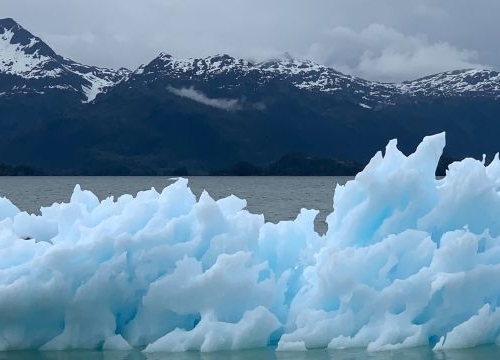Promoting and Protecting the Right to a Clean, Healthy and Sustainable Environment
Event


Melissa Bradley, Unsplash
Global challenges such as climate change, food insecurity, forced migration, and armed conflicts, as well as difficult access to water, land and other natural resources, raw materials and energy, have increased and have a major impact on stability and security in the world. Violations of human rights, especially in the context of environmental protection, are increasingly driving conflict.
At its 48th session in October 2021, the United Nations (UN) Human Rights Council (HRC) recognized for the first time the human right of all to a clean, healthy and sustainable environment, calling on states to work together, and with other partners, to implement this newly recognized right. It also invited the UN General Assembly (UNGA) to consider the matter. At its 76th session in July 2022, the UNGA responded to this call and recognized the human right of all to a clean, healthy and sustainable environment.
In parallel, UN treaty bodies (TBs) and regional courts are increasingly acknowledging the environmental dimensions of human rights. These TBs and courts are developing jurisprudence on environmental harm inducing human rights violations and on the negative human rights implications of climate change, as well as harmful projects aimed at mitigating and adapting to climate change.
At this side event to the HRC 51st session, the Geneva Academy, the Permanent Missions of Costa Rica, the Maldives, Morocco, Switzerland and Slovenia to the UN in Geneva, Franciscans International, CIEL and EarthJustice invite States, NGOs, international organizations and human rights experts to discuss their role in promoting and protecting the right to a clean, healthy and sustainable environment.
On this occasion, we will present our background paper Human Rights, the Environment, and the Right to a Healthy Environment, an output of our research project on the same issue and the basis of a future publication by the end of 2022.
Welcome
- Erica Harper, Head of Research and Policy Studies, Geneva Academy
Moderation
- Christophe Golay, Senior Research Fellow and Strategic Adviser on Economic, Social and Cultural Rights, Geneva Academy
Introduction
- Asim Ahmed, Ambassador, Permanent Representative of Maldives to the UN in Geneva
- Shara Duncan Villalobos, Ambassador, Deputy Permanent Representative and Chargée d'affaires a.i. of Costa Rica to the UN in Geneva
Panelists
- David R. Boyd, UN Special Rapporteur on human rights and the environment
- Astrid Puentes Riaño, Independent expert consultant on human rights, environment and climate change
- Megan Donald, Associate Research Fellow, Geneva Academy
- Olivier De Schutter, UN Special Rapporteur on extreme poverty and human rights
Conclusion
- Anita Pipan, Ambassador, Permanent Representative of Slovenia to the UN in Geneva
- Omar Zniber, Ambassador, Permanent Representative of Morocco to the UN in Geneva
Video
Promoting and Protecting the Right to a Clean, Healthy and Sustainable Environment
Watch this side event to the 51st session of the UN Human Rights Council which discussed the role of states, NGOs, international organizations and human rights experts in promoting and protecting the right to a clean, healthy and sustainable environment.








